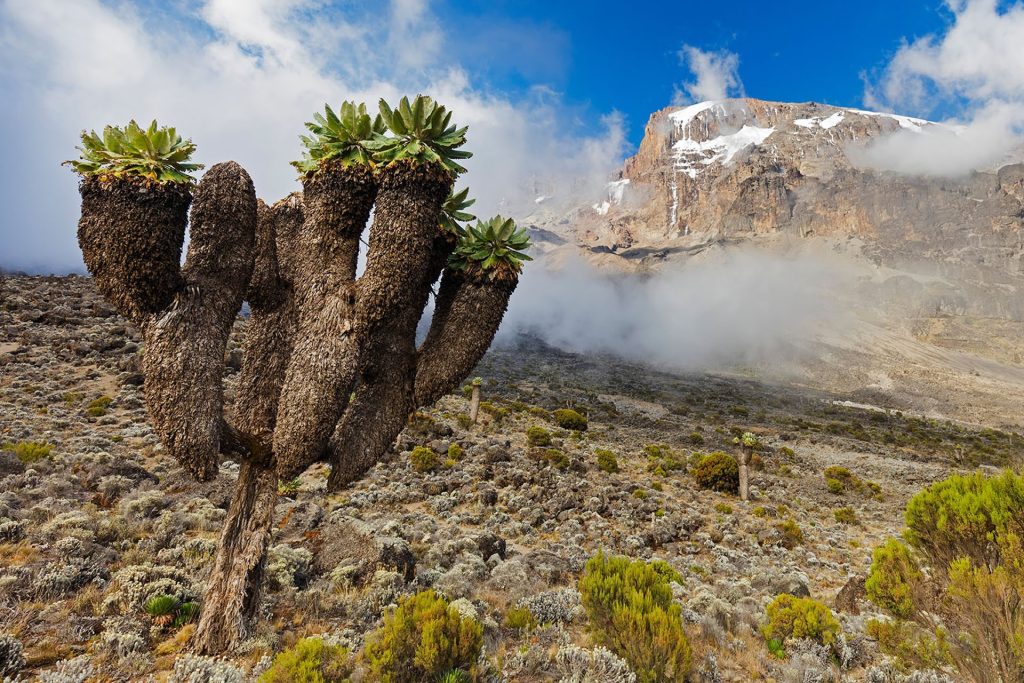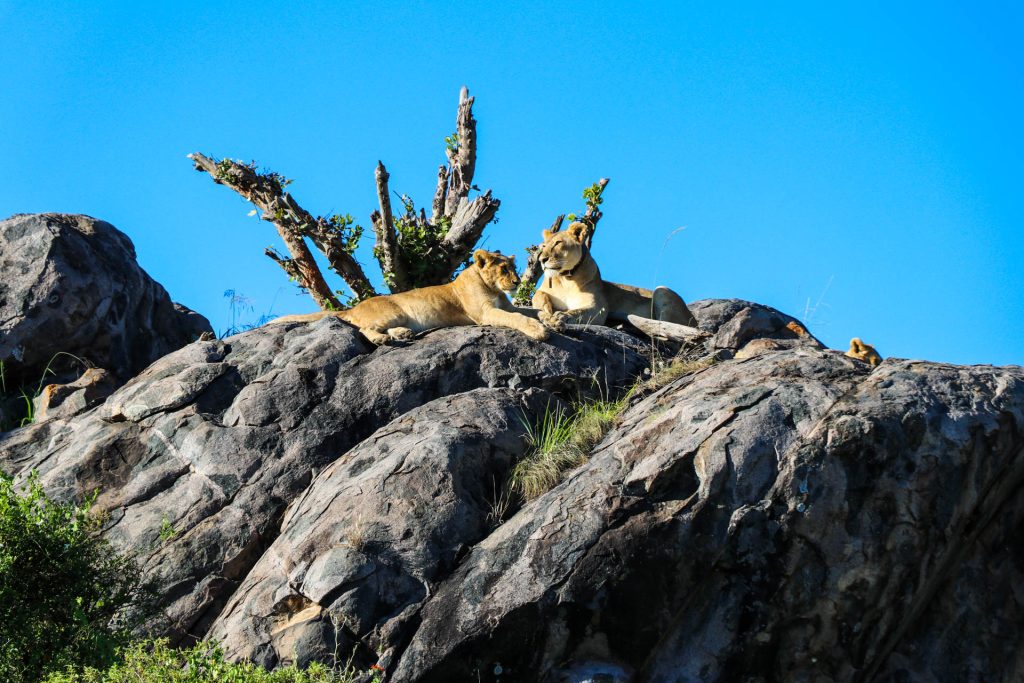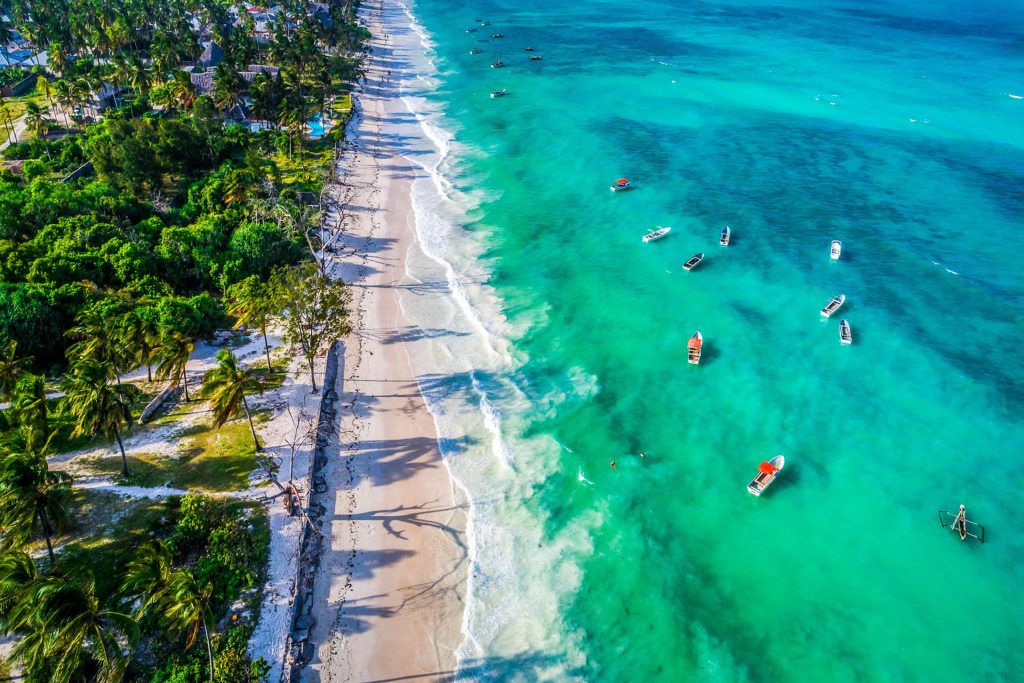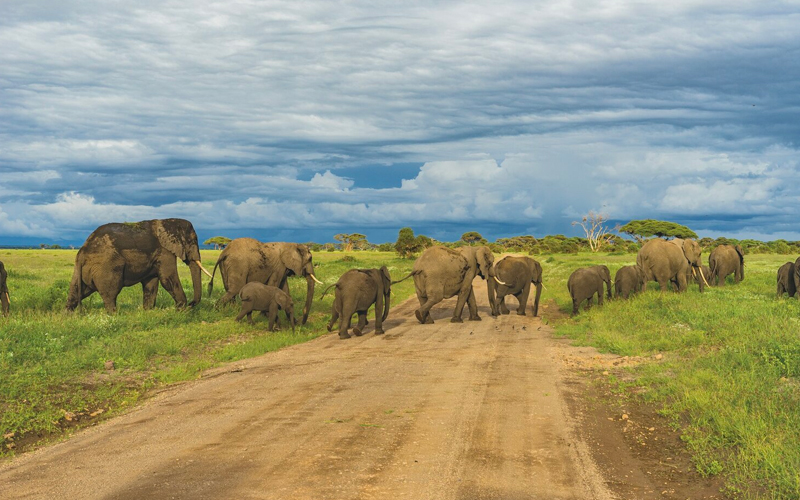Understanding the Climate in Tanzania
- Varied Weather Patterns: Tanzania experiences diverse climates depending on the region and time of year. Coastal areas like Zanzibar are typically hot and humid, while inland regions such as the Serengeti can be cooler, especially in the evenings. The dry season runs from June to October, offering sunny and warm days, while the wet season, from November to May, brings heavier rains and cooler temperatures.
- Packing for the Seasons: For the dry season, lightweight and breathable clothing is essential. Think cotton dresses, linen pants, and light blouses. During the wet season, include a waterproof jacket, quick-drying clothes, and a good pair of water-resistant shoes to navigate the occasional downpours.
Cultural Considerations
- Respecting Local Customs: Tanzania is a predominantly conservative country, especially in rural areas and along the coast where Islamic customs are prevalent. Modesty is highly valued, and women are advised to dress conservatively to show respect for local traditions. This means covering your shoulders and knees in public places.
- Navigating Urban and Rural Areas: In cities like Dar es Salaam and Arusha, the dress code is more relaxed, and you might see women wearing Western-style clothing. However, it’s still advisable to avoid revealing outfits. In rural areas and during cultural visits, opt for longer skirts, loose-fitting trousers, and tops that cover your shoulders.
Safari Outfit Essentials
- Practical and Comfortable: When on safari, comfort and practicality are key. Neutral-colored clothing is ideal as it blends with the environment and does not attract wildlife. Think khaki, beige, and olive green. Long-sleeved shirts and trousers can protect you from the sun and insect bites. Don’t forget a wide-brimmed hat and sunglasses for sun protection.
- Layering for Temperature Changes: Safaris often start early in the morning when it can be quite chilly, and temperatures rise significantly by midday. Layering is essential. Start with a base layer, add a fleece or sweater, and top it off with a lightweight jacket. This way, you can easily adjust to the changing temperatures.
Beachwear for Zanzibar
- Beach and Resort Wear: Zanzibar’s stunning beaches call for light and breezy beachwear. While bikinis and swimsuits are perfectly acceptable on the beach and at resorts, it’s respectful to cover up when walking through the village or dining at a restaurant. Pack a sarong or a beach cover-up for such occasions.
- Snorkeling and Diving Gear: If you plan to snorkel or dive, consider bringing your own gear or checking with your tour operator about rentals. A rash guard can be useful for sun protection and comfort during water activities.
Hiking and Outdoor Adventures
- Mountain Gear for Kilimanjaro: Climbing Mount Kilimanjaro requires specialized gear due to the varying altitudes and weather conditions. Pack thermal layers, a down jacket, moisture-wicking shirts, and durable hiking boots. A warm hat and gloves are also essential for the colder, higher altitudes.
- Other Outdoor Activities: For other outdoor adventures like trekking in national parks or exploring waterfalls, comfortable hiking clothes, sturdy shoes, and a waterproof jacket are recommended. Quick-drying materials are advantageous for activities near water.
Evening and Formal Wear
- Dining and Nightlife: In more upscale restaurants and during nightlife activities in cities and resorts, smart-casual attire is appropriate. Consider packing a few nicer outfits such as a maxi dress, a stylish blouse, and dressy sandals. While formality is generally not required, looking put-together is always appreciated.
- Cultural Evenings: If attending a cultural event or dinner with locals, opting for a traditional kanga or kitenge can be a wonderful way to show respect and appreciation for Tanzanian culture. These colorful fabrics can be purchased locally and worn as skirts, dresses, or shawls.
Footwear Choices
- Comfortable Walking Shoes: A comfortable pair of walking shoes is essential for exploring cities and towns. Choose shoes that are broken in and provide good support for long walks.
- Sandals and Flip-Flops: For beach days and casual outings, pack a pair of sandals or flip-flops. Ensure they are comfortable and durable enough for walking short distances.
Accessories and Essentials
- Sun Protection: The African sun can be intense, so sun protection is crucial. Bring a wide-brimmed hat, sunglasses, and plenty of sunscreen. A reusable water bottle is also handy to stay hydrated.
- Insect Repellent: Mosquitoes can be a nuisance, especially in the evenings and during the wet season. Pack a good insect repellent with DEET and consider wearing long sleeves and pants in the evenings to minimize bites.
Practical Packing Tips
- Travel Light: Aim to travel light, as you may need to carry your luggage over uneven terrain or in and out of safari vehicles. Choose versatile clothing items that can be mixed and matched to create different outfits.
- Local Shopping: Don’t worry if you forget something; you can find many essentials in local markets and shops. Plus, shopping locally supports the community and allows you to pick up unique souvenirs.
Packing for a trip to Tanzania as a woman involves balancing comfort, practicality, and cultural sensitivity. By understanding the climate, respecting local customs, and planning for various activities, you can ensure a smooth and enjoyable journey. Embrace the vibrant culture and breathtaking landscapes with confidence, knowing you’re dressed appropriately for every adventure.
FAQs
1. Is it safe to wear shorts in Tanzania? While it’s generally acceptable to wear shorts in tourist areas and on safari, it’s best to opt for longer shorts that reach the knee to show respect for local customs, especially in rural areas and towns. 2. Can I wear leggings in Tanzania? Yes, leggings are fine for activities like hiking or lounging, but pair them with a longer top or tunic to ensure modesty, particularly when visiting more conservative regions. 3. What type of footwear is best for a safari? Comfortable, closed-toe shoes or hiking boots are ideal for safari. They protect your feet from rough terrain and insects while providing support during long game drives. 4. Should I pack formal clothes for Tanzania? Formal clothes are not typically necessary unless you plan to dine at upscale restaurants or attend special events. Smart-casual attire is usually sufficient. 5. How can I dress to respect Tanzanian culture? Dressing modestly by covering your shoulders and knees, especially in rural and coastal areas, is a great way to show respect for Tanzanian culture. Wearing traditional fabrics like kanga or kitenge can also be appreciated by locals. For a comprehensive guide to Tanzanian safaris and adventures, explore the following topics on our site: Visit our page for detailed information and tips to plan your perfect Tanzanian safari experience.
Kilimanjaro Climb
Book Hiking tours to Mount Kilimanjaro, The Roof of Africa, Best Prices Guarantee!

Tanzania Safari Vacations
Explore our Unforgettable Tanzania Budget, Mid-Range & Luxury Wildlife Safari.

Beach Excursions
Visit Zanzibar Island and Coastal Tanzania for beach tours before and after a climb or safari.
ABOUT BOKER ADVENTURE…
Boker Adventure is a Tanzania Tours company located in Moshi town along the slope of Mount Kilimanjaro committed to offering local experiences such as Mount Kilimanjaro climbing experiences, Tanzania Wildlife Safari Experiences, Tanzania cultural tourism, bike tours, honeymoon, Air Ticketing and beach holidays. At Boker Adventures, we offer you a unique and comprehensive selection of Tanzania Private tours that are tailor made to suit your schedule and budget.
Please give us an opportunity to organize your African dream holiday!.










